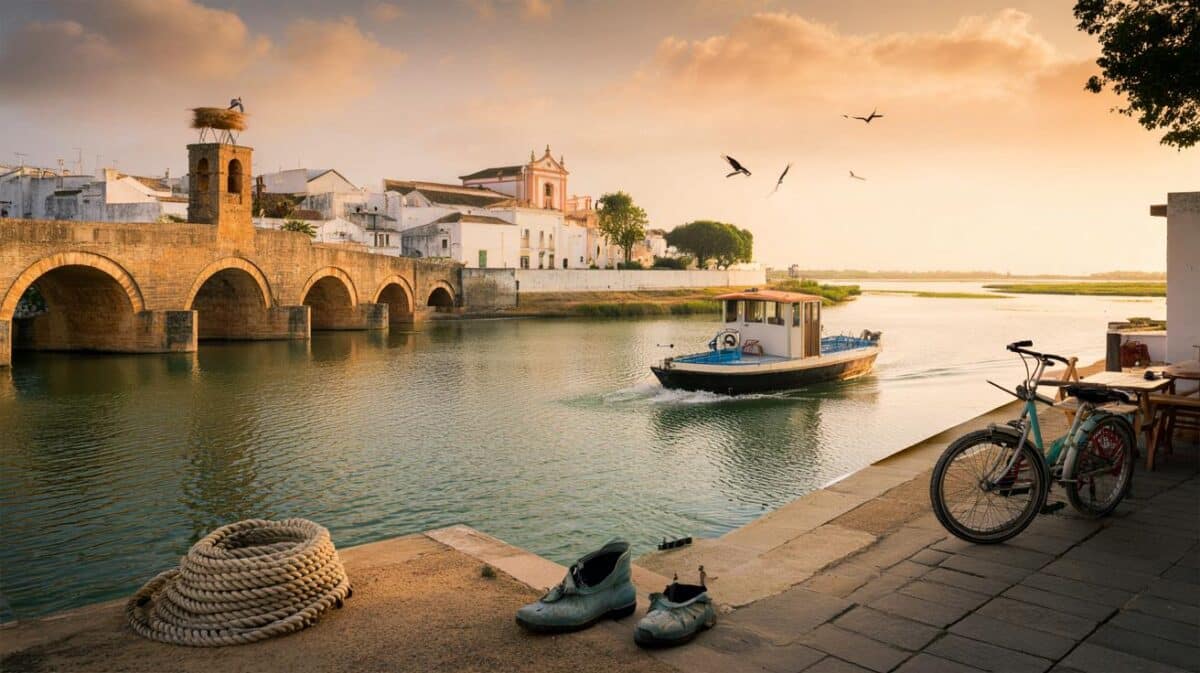You tell yourself you’ll squeeze them in after the next deadline, after the next meeting, after the next crisis. The year’s end won’t wait, and neither will your body.
For a moment last week in a London kitchen, I watched someone open their laptop at 6.12am, the kettle barely warm and the sky still velvet. Meetings jostled on the screen, tasks stacked like dominoes, and then—hidden in the corner—the number: 6 days of annual leave remaining. They stared at it as if it were a bill, not a gift, weighing risk, timing, guilt. *This year, take the days you’ve earned.* The kettle clicked off. They didn’t. Not yet. The city stretched, buses hummed, the day began its sprint. A quiet thought formed at the back of their mind, stubborn and small. What might happen if you actually did?
Time off isn’t a luxury. It’s a must.
Most of us were taught to prize stamina and treat rest as a treat. It isn’t. **Time off isn’t a luxury**; it’s fuel, like sleep, oxygen, and decent food. A brain that never idles loses its edge, and creativity collapses into repetition.
A sales lead I met in Manchester kept “saving” his days for a mythical quiet week. That week never arrived. He finally booked three midweek days, did little more than walk, cook, and read, then returned and closed two deals he’d been circling for months. He said the fix came in the shower, when his mind was relaxed. That tracks with what behavioural science keeps showing.
Recovery works because attention is finite and stress is cumulative. When you step away, your nervous system downshifts, memory consolidates, and your perspective widens. You notice patterns you were too close to see. It’s the law of diminishing returns in action: grind longer, achieve less; pause briefly, reset the slope. **Rest is a strategy**, not an escape.
Use your remaining days smartly
Open your calendar and anchor the days first, then plan the details later. Pair Fridays or Mondays to create long weekends that don’t nuke project momentum. If you’ve got four days left, try a 2–2–1 pattern across December and early January: two now, two around the holidays, one as a buffer when everyone else is returning.
Don’t wait for everyone’s approval or a perfectly tidy to-do list. That list breeds hydra heads. Put a simple out-of-office, delegate one key task per day you’re away, and leave a short handover doc. Let’s be honest: nobody really does that every day. You can do it once this week. The point is to make your time off unavoidable, then make your return gentle.
Low-cost breaks count. A day for light, not logistics. A morning without alarms, a train to the coast, a museum at opening time, or lunch with the person you keep postponing. Give the day a theme—“catch the winter sun”, “finish the book”, “cook from scratch”—and keep your phone out of reach.
“Rest is part of the job, not a prize at the end.”
- Book the day before a bank holiday for a four-day stretch.
- Use half-days to protect school events or a long appointment.
- Set one non-negotiable joy task: walk a new route, swim, bake.
- Switch off push notifications and move work apps to a hidden screen.
- Leave a voice note to yourself with one clear intention for the day.
The hidden upside of switching off now
We’ve all had that moment when the office feels louder than usual and your patience runs thin at 3pm. That’s the signal, not the problem. When you take the days you’re owed, you interrupt the run-down cycle that often peaks in late December. You show up to family gatherings less brittle. You start January with a fresher brain, not a resentful one.
There’s a ripple effect inside teams. When one person actually uses their leave, others follow. Projects shift to sustainable tempos, meetings get crisper, and the culture quietly improves. You might even find that the work you were guarding does just fine without you for a bit. Strange relief, that. **Use it or lose it** has a different ring when it’s your energy on the line.
The science sings the same tune as common sense. Mood stabilises when you rest, immunity holds up better, and your working memory regains capacity. You don’t need a fortnight in Bali to get the benefits; you need deliberate time that isn’t shaped by work. You’ll make fewer mistakes, escalate fewer small conflicts, and spot opportunities faster. The so-called soft choice pays hard dividends.
What might change if you book today
The next time your cursor hovers over “request leave”, think of it as skill, not indulgence. Book the days, then protect them with the same seriousness you give a client pitch. If guilt bites, call it what it is: a habit that no longer serves you. Give yourself a day for light, a day for sleep, a day for conversation. Let the year end without squeezing every last drop from yourself. Then notice what returns in the space you’ve opened—ideas, humour, patience, appetite. The work will still be there. You’ll meet it differently.
| Point clé | Détail | Intérêt pour le lecteur |
|---|---|---|
| Book anchor days now | Lock Fridays/Mondays for long weekends | Max rest with minimal disruption |
| Plan micro-holidays | Half-days, local trips, themed downtime | Quick wins without big budgets |
| Protect the boundary | Short handover, concise OOO, no notifications | Actual recovery, not pretend time off |
FAQ :
- What if my workload is too heavy to take time off now?Prioritise two days and shift lower-impact tasks; heavy seasons don’t vanish, so you carve space, not wait for it.
- Can my employer refuse my holiday request?They can propose alternatives for business reasons, yet they should offer reasonable dates within the leave year.
- My leave doesn’t roll over—what can I do?Break it into half-days and long weekends, and request specific dates promptly to avoid clashes.
- How do I actually switch off?Create friction: sign out of work apps, hide them on your phone, and leave one trusted contact for emergencies.
- Any ideas for low-cost days off?Sunrise walk, library morning, batch-cook day, free gallery trail, or a train to the next town’s market.








